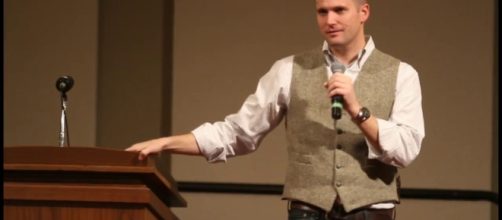The white supremacists may have President Donald Trump on their side, but other institutions and even CEOs are battling them. For instance, PayPal appears to have cut ties with Richard Spencer and his National Policy Institute.
Fortune reported that after the backlash over white nationalist groups’ use of PayPal, the company has refused to receive money for the Institute. As of Wednesday morning, the PayPal link of the Institute has the message that the recipient is currently unable to receive money. A message like that means the account of the National Policy Institute has been limited or banned by PayPal.
PayPal screens website for breach of acceptable use policy
White supremacist groups, such as the National Policy Institute, which participated in the Charlottesville rally, had used PayPal to raise money. As a result, PayPal was criticized that prompted the company to screen websites and organizations if it breached the online payment platform’s acceptable use policy.
Spencer, the president of the Institute, took part in the Charlottesville rally to protest the removal of Confederate General Robert Lee’s statue. A woman died after a white supremacist driver crashed into the crowd of counter-protesters when clashes erupted.
In a statement issued on Tuesday, PayPal said that the platform is working to ensure that its services are not used to promote hate, violence, or racial intolerance.
It specifically cited groups that advocate racist views such as the KKK, Nazi groups, and white supremacist groups.
The efforts of the Charlottesville City Council to remove a statue of Lee – erected in 1924 and funded by commodity trader Paul Goodloe McIntire – triggered the rally that turned violent and further divided the nation already wracked by the 2016 election.
University of Florida closes door on Spencer
Besides the PayPal action, CNN reported that on Thursday, the University Of Florida rejected a request by the National Policy Institute for Spencer to deliver a talk on the campus on Sept. 12. W. Kent Fuchs, the president of the university, in a Facebook post, said it decided to turn down the institute’s request after the university assessed the potential risk with the campus, community, state, and federal law enforcement officials.
Fuchs cited calls online and in social media for a similar violent incident in Gainesville amid talks that the next battlefield would be in Florida. He said the decision came from the potential violence from the presence of Spencer, not the words or idea, although Fuchs pointed out that the racist words of Spencer and white nationalism is repugnant and goes against everything that the university and the nation stand for.
The university president said the campus remains an advocate of free speech and public discourse, but Fuchs said the First Amendment does not require a public institution to risk violence to students and others.


